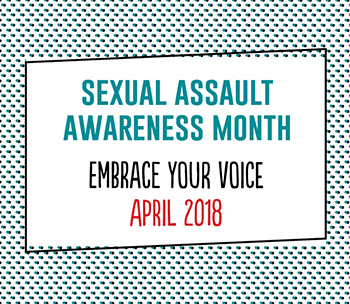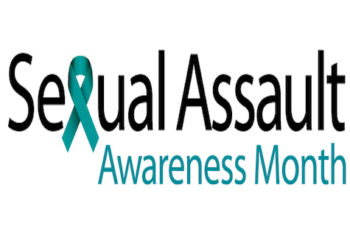
Sexual assault happens in Charlottesville, just as it does in every city, town, suburb and campus in America. Most communities are in denial about it, says Jeanne Parrish, DNP, forensics coordinator/nurse practitioner at UVA Emergency Department. “People have told me, ‘Oh, that doesn’t happen in Charlottesville,’” she says. “But sexual assault does happen here.”
Parrish and her colleagues work with the survivors of sexual assault, domestic violence, child abuse and elder abuse. UVA is the only hospital in the area with a dedicated forensic nursing team. The team provides medical care after a sexual assault and, if the patient wants it, can involve law enforcement. A forensic nurse examiner is on call and will provide coverage in the emergency department 24 hours a day, seven days a week.
Parrish emphasizes that anyone who’s endured sexual assault should seek medical care immediately. She and her colleagues can provide support in other ways, but patients need to come through the emergency department door first.
“We’re here for the patient,” she says. “We’re here to support them. Whether or not they report to law enforcement is totally their decision.”
Have You Suffered Sexual Assault?
Call 434.924.0000 and ask to speak to a Forensic Nurse Examiner.
After Sexual Assault: Medical Care Comes First
“After a traumatic event, you need medical care,” says Parrish. “We can provide medical attention and help protect you from sexually transmitted infections, HIV and pregnancy.”
After an assault, it’s your choice to involve law enforcement, whether immediately, later on, or not at all. People often think that if they come to the emergency department after a sexual assault, they’ll also have to report it to law enforcement. You can do that if you want to, and a forensic nurse examiner will contact law enforcement so that you can file a report in the emergency room.
Medical care providers must report:
- Child abuse
- Penetrating trauma, meaning shooting or stabbing
- Elder abuse
With your consent, a forensic nurse examiner will gather evidence. If you do want to pursue a case, collecting evidence as soon as possible is important. If you want to involve law enforcement right away, the examiner will hand the evidence to law enforcement offers in the emergency department.
In the case of anonymous reports, where a patient doesn’t want law enforcement involved immediately but would like evidence collected in case she wants to report to law enforcement later, the patient currently has two years to report the assault. “We will send the evidence to Richmond where it will be stored for two years,” Parrish says. There is proposed legislation that will extend this time to 50 years.
“But you have to collect the evidence first,” Parrish adds.
If You Experience Sexual Assault in Charlottesville
If someone sexually assaults you, come to the UVA emergency department as soon as you are able to. We are the only emergency department in the area that has a forensic nurse examiner on call 24 hours a day, seven days a week.
Try to avoid the following until after the sexual assault forensic exam:
- Eating
- Drinking
- Smoking
- Using the toilet
- Changing clothes
- Showering or bathing
But even if you don’t avoid the above, it won’t prevent a forensic nurse examiner from collecting evidence. “You can still have a forensic exam if you’ve done these things up to 120 hours (5 days) after the assault,” Parrish says.
Sexual Assault Evidence Collection Kit
A forensic nurse examiner can collect touch DNA evidence — meaning the DNA someone leaves by touching you — for 48 hours after the incident. The examiner can also collect other physical evidence, via vaginal and cervical swabs, up to five days after the event.
“I don’t like the term ‘rape kit,’” Parrish says after I say it. “That term discourages people from getting evidence collected if they think that they haven’t been raped in the strictest sense.”
Collecting Sexual Assault Evidence
The first thing the medical team will do is treat any injuries that need immediate attention. The exam itself can take a couple of hours. Parrish and her team are sensitive to how difficult this experience can be. At every step of the exam, it is entirely your choice to:
- Stop
- Take time to pause
- Skip a step
The exam includes these steps:
- Taking a medical history, including current medications and any pre-existing conditions.
- Questions about recent consensual sexual history — while this may seem very personal, it’s to ensure that the evidence collected is from the perpetrator and not from consensual sexual contact.
- Details of the assault — this is to identify areas of the body that have been injured, touched, or come in contact with bodily fluids, as well as clothing that might contain evidence.
- Physical examination — this is a full-body exam, including internal exams of the mouth, vagina and/or anus. It might include taking blood and urine samples as well as swabs of body areas and hair samples. This may include pictures to document injuries.
- Clothing collection — if you consent, the team will take items of clothing, including underwear. Other physical evidence, like hair or clothing from the perpetrator, might be identified during this exam.
- Follow-up care — this can include treatment for sexually transmitted diseases, a follow-up appointment with a medical care provider, or other support services, such as SARA.
Giving Back Control After Sexual Assault
Parrish wants people to understand that sexual assault is more than rape. “Any unwanted sexual contact that you are forced to endure without your consent is sexual assault,” she says. A term like “rape kit” can discourage women — 95 percent of the people who come to UVA reporting sexual assault are women — from preserving evidence or even seeking medical care after an assault.
“Nearly every victim sees it as her fault,” says Parrish. “Self-blame and victim-blaming add to this. The survivor of sexual assault has to process not only the intimate physical violation that they’ve endured but the mental trauma as well. Our aim in the emergency department is to give them back as much control as we can.”

